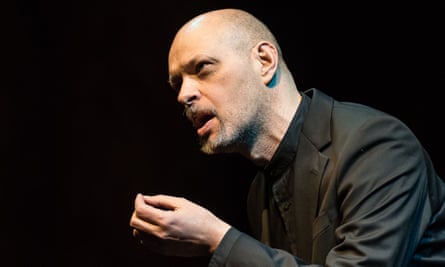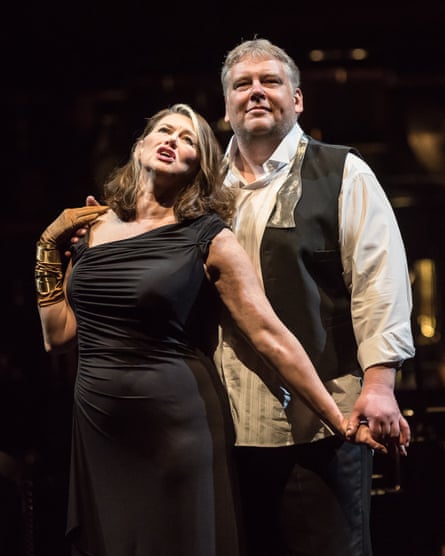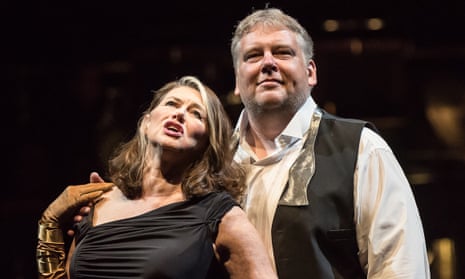As Richard Farnes urged his Opera North orchestra into the final redemptive bars of Wagner’s Ring Cycle, one half expected the Festival Hall to burst into flames, the Thames to flood its banks and the lofty City of London Valhalla across the river to crumble to the ground as the composer more or less intended. Rarely can the worldly context of a Ring Cycle performance have better matched Wagner’s epic of power, greed and expiation than in these lurching catastrophic days of economic and political crisis. Wagner’s incomparable achievement felt more genuinely contemporary and immediate than ever.
Yet Opera North’s central achievement in this semi-staged concert hall cycle is to bring the focus emphatically back to Wagner’s music, not to his literary ideas. By the second half of the cycle, the rippling video backdrops that had seemed a promising expressive device in Das Rheingold had run out of originality. One was left to focus on the words (though there were complaints about the legibility of the surtitles), on the pared-back but imaginative staging by Peter Mumford and, above everything else, on the music, in particular the orchestral writing.

However, Opera North’s overall achievement should not blind one to its limitations.
To have a different Wotan in the first three parts (the urbane Béla Perencz took the Wanderer’s role in Siegfried), and different Siegfrieds (Lars Cleveman in Siegfried, consistently good, and Mati Turi in Götterdämmerung, engaging but more variable) was a distraction, the loss especially evident when measured against the ever-present Alberich of Jo Pohlheim and Brünnhilde of Kelly Cae Hogan, who consistently provided – along with Lee Bisset’s Sieglinde in Die Walküre – the standout performances of the cycle. It did not help that none of the Wotans and neither of the Siegfrieds, though all vocally acceptable, quite rose to the level that the roles require.

Hogan’s Brünnhilde was magnificent throughout the final operas, bright and thrilling in Siegfried, incisive and sympathetic in Götterdämmerung in the role’s many demands, not least in terms of stamina, and crowned by a compelling immolation scene. In Siegfried, Richard Roberts was a busy and clear Mime, Ceri Williams a sympathetically sung Erda, and Jeni Bern did an enjoyable turn as the Woodbird. In Götterdämmerung, Mats Almgren’s Hagen was malice personified in voice and looks, though his German diction was indistinct, Andrew Foster-Williams was a strongly sung Gunther, Giselle Allen an engaged Gutrune and Heather Shipp an urgent Waltraute. There were good trios of Norns (which included a lovely cameo by the veteran Fiona Kimm) and Rhinemaidens.
Yet it was Farnes (who is about to move on from Opera North) and the orchestra who did more than anyone to make this Ring not just praiseworthy but wonderful. Yes, there were occasional flaws in some of the playing. Yet the sweep and pacing of Farnes’s conducting, and the execution by his players in detail and overall were of the highest quality. It was a unique chance to hear what goes on in the engine room of a Ring performance, with the violas and trombones deserving special praise. And, yes, that was Wagner-lover George Osborne in the audience, watching and listening as the world ended.

Comments (…)
Sign in or create your Guardian account to join the discussion